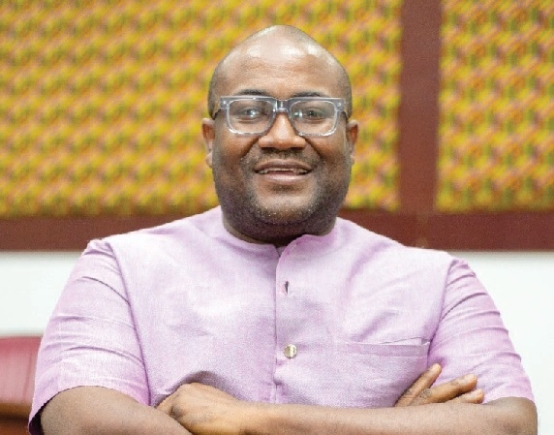Ghana's currency is finally generating news for the right reasons—a story to celebrate. After years of depreciation and economic turmoil, the Ghanaian cedi has made an impressive comeback.
According to Bloomberg, Ghana's cedi is the world's best-performing currency, up 16 per cent against the US dollar since April 2025. But that is not all. Inflation has also slowed, falling from 22.4 per cent in March to 21.2 per cent in April.
These aren't just numbers; they're tangible evidence that Ghana's economy is regaining strength and heading for a much-needed recovery.
However, while the data indicates a turnaround, the reality for many Ghanaians remains unchanged. Prices at markets, petrol stations and shops remain high, with little indication of relief.
During the cedi's collapse, businesses quickly raised prices, claiming higher import costs and a worse exchange rate. The response was understandable.
However, now that the cedi is strengthening, justice and consistency require that those same firms pass on the benefits by lowering prices. This article calls attention to the urgency for businesses to respond fairly to the economic rebound.
Public trust and confidence
One of the most significant casualties of Ghana's economic woes has been public trust. When prices rise dramatically owing to currency devaluation, people understand why. However, when the currency strengthens and prices stay high, there is a sense of exploitation.
Businesses that refuse to lower their pricing risk alienating customers, resulting in lower sales and brand distrust.
Orca Deco's choice to lower costs exemplifies goodwill and customer-centric thinking, which can boost brand loyalty. If additional businesses follow suit, it has the potential to restore market confidence and promote spending.
Reducing inflationary pressures
Despite recent improvements, Ghana continues to face significant inflationary pressures. If firms maintain artificially high prices despite a stronger cedi, they contribute to sticky inflation, which occurs when prices remain inflated even as underlying costs fall.
Fair pricing will help to stabilise prices, ensuring that the benefits of the cedi's appreciation are reflected in lower living costs for Ghanaians. This would, in turn, help the Bank of Ghana's attempts to manage inflation.
When prices fall (or at least stabilise), people are more likely to spend rather than save money. Increased consumer spending stimulates demand, resulting in increased output, employment creation and overall economic growth.
If businesses retain high pricing despite decreasing import costs, they risk stalling demand and slowing economic growth. Fair pricing, therefore, is more than just fairness; it is also about keeping the economy moving.
Competitive markets
A fair pricing market promotes healthy competitiveness. Businesses that refuse to lower their pricing risk losing customers to competitors that do. The recent price decrease by Orca Deco may encourage other furniture dealers to follow suit to remain competitive.
This dynamic not only benefits consumers by providing better deals, but it also promotes a balanced and responsive economy in which pricing reflects actual market realities and encourages overall justice.
Protecting vulnerable consumers
High costs disproportionately affect low and middle-income earners, complicating their daily lives.
Even tiny price cuts on necessities such as food, fuel and transportation can provide much-needed respite to these people.
Fair pricing is more than just economics; it demonstrates a commitment to equality and compassion. It ensures that the advantages of a stronger economy benefit everyone, not just a select few. In this context, fair pricing is used to promote economic justice and social responsibility.
Import costs and inflationary pressures have come down as economic fundamentals improve and the cedi increases, making raw commodities more accessible.
However, maintaining high prices defies economic logic. Fair pricing ensures that businesses adhere to current market realities, represent realistic costs and create consumer trust in a recovering economy.
Ethical business standard
Businesses such as Orca Deco have shown that ethical leadership is feasible in Ghana. Others can follow suit, prioritising long-term client loyalty over short-term profit maximisation.
Companies that lower prices fairly present themselves as socially responsible and trustworthy, generating goodwill that can be translated into long-term client loyalty and a strong brand reputation.
The cedi's resurgence provides a rare window of opportunity. It is an opportunity for all stakeholders, businesses, consumers, government and civil society to act on principle and purpose. The economic indicators are pointing in the right direction.
The next stage is to guarantee that these gains are felt at the grassroots level. Fair pricing is more than just good economics; it is a moral obligation.
Currency strength should be recognised in boardrooms, not only highlighted in Bloomberg headlines. It must convert into lower prices, improved living circumstances, and a sense of relief for the Ghanaian people.
The writer is a Lecturer/SME Industry Coach, Coordinator (MBA Impact Entrepreneurship and Innovation) at the University of Professional Studies, Accra
ayiku.andrews@upsamail.edu.gh
IG: andy_ayiku
@AndrewsAyiku
F: Andyayiku
